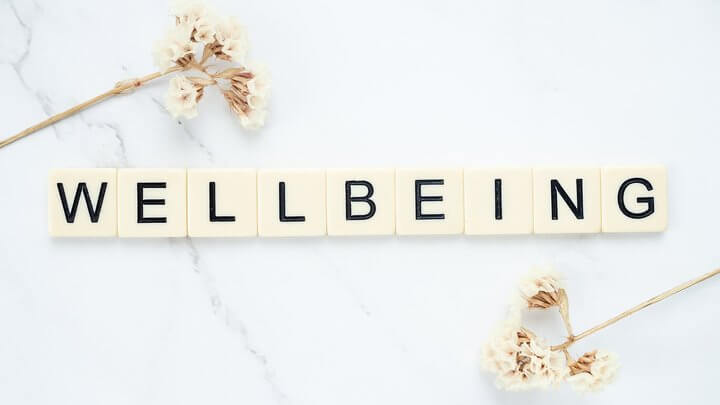Self-forgiveness is the process of letting go of guilt for mistakes or wrongdoings.
It involves acknowledging your imperfections, understanding your actions, and being compassionate with yourself.
It’s vital for your emotional well-being. You move away from regret and make peace with yourself. You learn from mistakes and make better choices.
It’s not uncommon for us to be our harshest critics and get caught up in blame and self-hatred. But, in doing so, we only cause ourselves further pain and distress. It’s tough to admit when we’ve made a mistake or hurt someone we care about. But carrying that guilt around can be a heavy weight on our mental and emotional well-being.
When you refuse to forgive yourself, you may become trapped in a cycle of negative self-talk. It can create feelings of unworthiness and shame, leading to low self-esteem.
Moreover, failure to forgive yourself can lead to anxiety, depression, and stress.
All these can affect your relationships, work, and quality of life.
Yet, practicing self-forgiveness leads to increased self-worth and well-being. Emotional health influences how you cope with stress, build relationships, and enjoy life.
Related article: Emotional Well-Being: Your Journey to a Balanced Life
That’s why it’s so important to forgive yourself. It’s great for your personal growth. You free yourself from negative thoughts and emotions that may hold you back.
In this blog post, we’ll explore how self-forgiveness contributes to better emotional health.
Understanding Self-Forgiveness
Self-forgiveness is a conscious choice to let go of negative feelings towards yourself. It’s the process of releasing self-directed negative emotions stemming from wrongdoings.
It involves accepting responsibility for past actions, and acknowledging the harm caused. Make amends if possible. Also, show compassion and understanding towards yourself. Avoid falling into destructive guilt.
Forgiving yourself doesn’t mean dismissing your mistakes or justifying your behavior. Instead, it’s about taking ownership of your actions.
Through self-forgiveness, you get to use past experiences as growth opportunities.
Related article: 5 Simple Tips to Practice Self-Forgiveness

Difference Between Self-Forgiveness and Self-Pity
Self-forgiveness is not the same as self-pity.
Self-pity involves wallowing in your perceived misfortunes and feeling helpless. It leads to a cycle of negativity and keeps you stuck in a state of helplessness.
It’s important to acknowledge and process negative emotions associated with faults. But dwelling on them can lead to feelings of victimhood and inaction.
Self-forgiveness is an active process where you take responsibility for your mistakes. It helps you to let go of the negative emotions associated with these faults. And, it empowers you to learn from your experiences and grow.
Differentiating Self-Forgiveness From Self-Indulgence
Self-forgiveness is also different from self-indulgence.
The Merriam-Webster dictionary defines self-indulgence as “excessive or unrestrained gratification of one’s own appetites, desires, or whims”.
Self-indulgence involves justifying harmful behavior and avoiding responsibility for your actions. It can lead to a lack of accountability and harm to yourself and others. It often contributes to repeated mistakes and a lack of personal growth.
Self-forgiveness requires a balanced approach. You recognize your wrongdoings, take accountability, and commit to making better choices. It allows growth and learning from those errors.
Forgiving yourself does not mean excusing harmful behavior. It’s about finding a middle ground where you can accept your faults while striving to improve. It ensures that forgiveness creates positive change, rather than complacency.
Forgiveness is for yourself because it frees you.
It lets you out of that prison you put yourself in.
— Louise Hay
Benefits of Self-Forgiveness
Forgiving yourself enhances your emotional and mental health. It also helps you experience positive changes in your physical well-being.
The holistic benefits make it a great tool for leading a balanced and healthy life.
Emotional Benefits
- Improved self-esteem: Forgiving yourself boosts your sense of self-worth and confidence.
- Increased compassion: It fosters empathy and understanding towards yourself and others.
- Reduced negative emotions: It decreases feelings of guilt, shame, and regret. In turn, you experience more positive emotions.
- Emotional stability: By letting go of past mistakes, you achieve greater emotional balance and resilience.
- Enhanced relationships: It improves your interactions with others by reducing self-imposed emotional barriers.
Impact on Mental Health
- Lower levels of stress: Breaking the cycle of negative self-talk can reduce stress and anxiety.
- Decrease in depression symptoms: There is a link between self-forgiveness and lower rates of depression and distress.
- Better coping mechanisms: It enhances your ability to handle life’s challenges.
- Enhanced mental clarity: Freeing yourself from constant self-blame can lead to better focus and decision-making.
- Increased life satisfaction: Mental well-being contributes to a more fulfilling and contented life.
Physical Wellness Correlations
- Improved sleep quality: Reduced stress can lead to better sleep.
- Lower blood pressure: Emotional well-being achieved through self-forgiveness can contribute to healthier blood pressure levels.
- Better immune function: Lower stress levels affect the immune system, making you less susceptible to illnesses.
- Increased energy levels: Letting go of emotional burdens can result in higher energy levels and vitality.

Self-Forgiveness for Emotional Well-Being
Self-forgiveness has a profound impact on your emotional well-being.
When you forgive yourself, you release the guilt and shame that weigh you down. These emotions often lead to inner turmoil and stress. They can affect your ability to enjoy life.
By practicing self-forgiveness, you embrace a more compassionate view of yourself. This creates space for more positive and constructive feelings.
This positive mindset enables you to process emotions. It paves the way for improved coping mechanisms and resilience.
Moreover, it enhances your ability to form and maintain healthy relationships.
Releasing negative emotions helps reduce barriers that might hinder your interactions with others. This fosters deeper connections and more meaningful relationships, contributing to emotional well-being.
By prioritizing self-forgiveness, you lay the groundwork for a more fulfilling life.
Related article: Self-Forgiveness to Enhance Emotional Well-Being: 5 Practical Strategies
Self-Forgiveness for Self-Acceptance
Self-forgiveness plays a crucial role in achieving self-acceptance. It acts as a bridge that connects acknowledging your flaws and embracing your whole self.
When you forgive yourself, you recognize that making mistakes is natural. This acknowledgment helps dismantle unrealistic expectations of perfection and creates space for self-acceptance.
You also let go of guilt and shame, which are significant barriers to self-acceptance.
When you forgive yourself, you see yourself with more clarity and accept all parts of who you are. This is essential for building a positive self-image that enables you to move forward.
The synergy between self-forgiveness and self-acceptance lies in their mutual reinforcement.
As you practice self-forgiveness, you develop compassion, which is a cornerstone of self-acceptance. This compassionate approach helps you accept your flaws and strengths.
Acceptance means acknowledging that you are worthy of love. As a result, you are more inclined to forgive yourself and move forward with a healthier mindset. Accepting who you are creates a nurturing environment in which forgiveness becomes easier.
Additionally, self-acceptance provides a solid foundation for personal growth. It allows you to approach self-improvement with kindness, making the process more sustainable.
In essence, self-forgiveness and self-acceptance work hand-in-hand. By forgiving yourself, you pave the way for self-acceptance. In turn, this makes forgiveness a more natural and ongoing practice. Together, they form a synergy that fosters emotional healing, personal growth, and well-being.
Related article: Self-Acceptance: Embracing Who You Are

Conclusion
Self-forgiveness is a powerful tool that fosters emotional well-being and personal growth.
It involves acknowledging your mistakes and understanding their impact. Then, letting go of negative emotions associated with them.
It is a continuous journey of self-discovery and healing. It enables you to move forward with a healthier, more positive mindset.
The benefits of self-forgiveness go way beyond emotional relief. They foster mental and physical health improvements.
By embracing this practice, we lay the foundation for a fulfilling and balanced life.


0 Comments